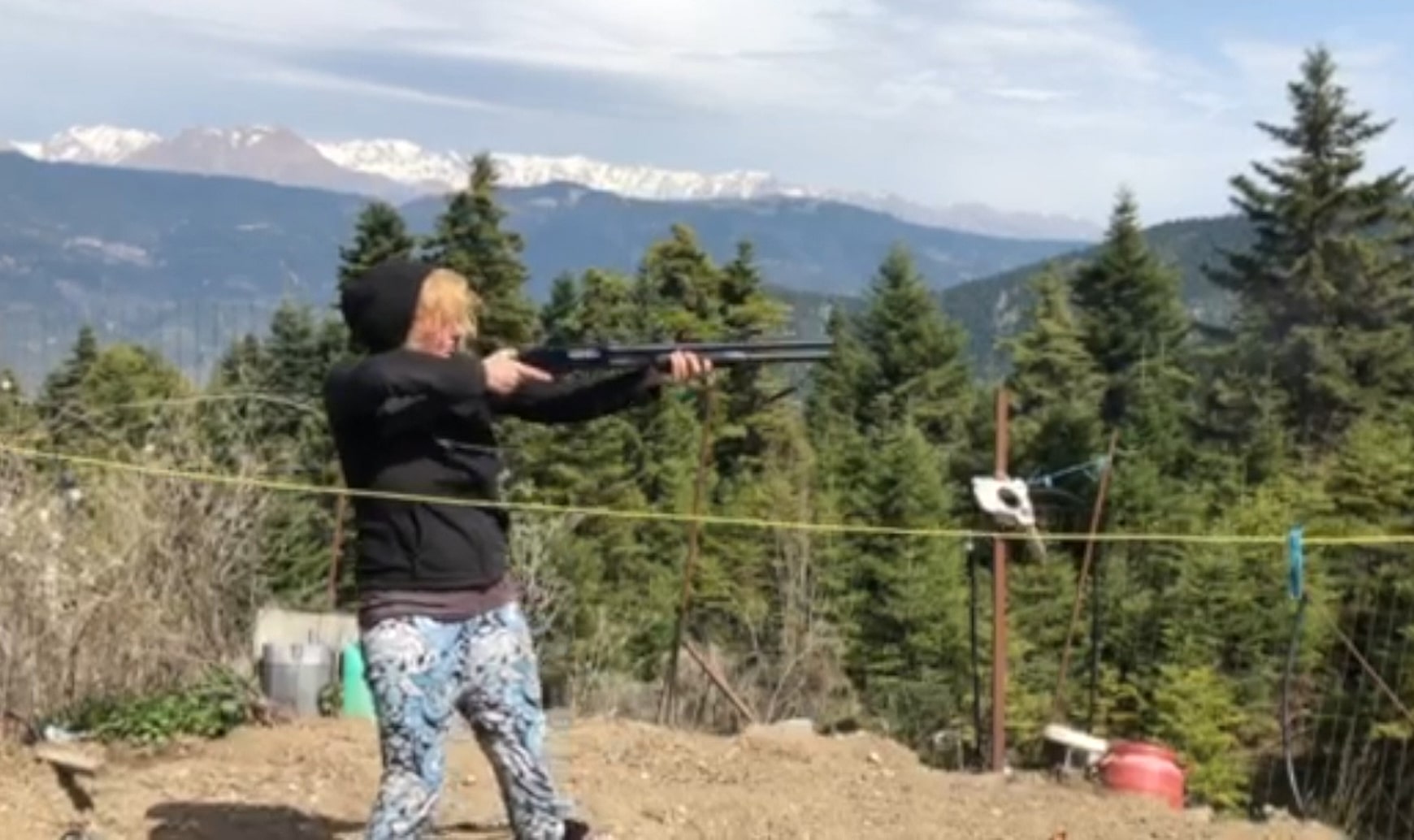On the 18th of May, the Onassis Cultural Centre in Athens released LALKA, a controversial video by Greek artist Lena Kitsopoulou, as part of ENTER, an online-art project initiated by the Onassis Foundation in response to the Covid-19 lockdown. The project consists of new commissions to artists around the world, which are supposedly made in 120 hours during the lockdown.
Set in an animal farm up in the mountains of Nafpaktos, Greece, LALKA is shot in an informal and rough style, like an amateur social media video. Its protagonists are the artist herself and a man credited as "the Indian", who take turns filming each other as they perform different actions within and around the farm. LALKA triggered significant backlash on social media, mainly due to its graphic content, patronising tone, and for being a perfect example of institutional navel-gazing.
Over the course of the video, the artist calls her audience "rookies" (ψαρούκλες) who don't know how to live, smokes cigarettes while staring defiantly into the camera, shoots a shotgun in the air several times and then chases some domesticated ducks. The video also includes footage of the Indian skinning a deer, cutting it up with a cleaver and biting into raw fish and what is probably the deer's liver. Most of the negative comments that came as a response to the video focused exactly on this gory part and the cheap way it deploys animal cruelty to shock the viewer.
From the artist's statement that accompanies the video, we glean some ideas about what Kitsopoulou's intent was. She informs us that her project "suggests loving our instincts, celebrating them, not suppressing them anymore for the sake of a supposedly civilized but nevertheless unfree living". Further down, the artist explains that we have been "enslaved" in capitalism; her experience in the wilderness of Lalka has apparently made her "realize how much human strength for survive [sic] has failed" within capitalism. She also states that "attacking and killing for food" is "just a natural [kind of] violence that we must come in terms with", to then add that a person who eats meat is not any worse than someone who keeps a dog on a balcony.
Confused, conflicting and naïve as they are, Kitsopoulou's ideas are nowhere close to what she had intended to achieve with this particular work. Equating violence, domination and cruelty with freedom and the anticapitalist struggle is one of LALKA's biggest failures, but still not quite the reason why it fails so spectacularly. Gun possession, illegal hunting (note: it is illegal to kill deer in Greece), heavy smoking, blood-thirstiness, a performance of primitivism and a penchant for violence are some of the most recognisable traits of toxic traditional Greek masculinity. In LALKA, Kitsopoulou claims she wanted to celebrate a return to nature and a rebellion against the system. What she achieves instead is a celebration of abusive, murderous Greek machismo of the far-right variety.
Obnoxious masculinity and patriarchal ideology seem to be a favourite subject of Kitsopoulou's in general, as we can see both in her work and public statements. Her recent solo show at The Breeder gallery in Athens was entitled Between my Legs, and consisted mainly of large canvases full of super-masculine, over-sexualised human figures oozing anger, testosterone and violence. In the exhibition text the artist writes: "I, for example, if there were a God, should have been a man in Far West. Kicking swing doors at the saloons and getting in. [...] Fucking whores, and feeling my gun barrel pressing against my ball."
Both in LALKA and Between my Legs, Kitsopoulou confuses revolution with male entitlement, and ends up perpetuating all the things that are wrong with traditional masculinity and its destructive impact on society. Unfortunately, there isn't the slightest evidence that what she does comes as any sort of critique, but sadly emerges as part of her overall ideology: in a recent interview about Between my Legs the artist (prophetically) described her ideal male lover as a "deer hunter", and in another interview she commented that she "loves men more than women", and that "often women have a hysterical emotionalism [...] and they become castrating."
LALKA is tone-deaf, insensitive and dangerously superficial — as it celebrates the very toxic culture that leads to homophobic lynchings, murderous bullying, serial rape, femicide and countless other crimes that have their roots in patriarchal ideology and are often left unpunished in Greece. There is no excuse for a contemporary Greek artist and an influential cultural institution to promote and celebrate the values of toxic masculinity. It is an insult to civil society that LALKA found its way into the public sphere the way it did, only two days after Eleni Topaloudi's rapists were finally convicted and the local feminist movement celebrated a small yet symbolic victory.
The artist and commissioners of LALKA have demonstrated that they are completely detached from Greek reality. As such, the release of LALKA undermines the entire concept behind the Onassis Foundation's ENTER project: it reduces its promises of "bringing us together" and offering "a ray of hope for the artistic world [...], yet another proof that we are not alone" to mere lip service. Which also begs the question: is the entire adoption of queer, post-colonial and free-movement agendas by the Onassis Cultural Centre also as superficial as this?

